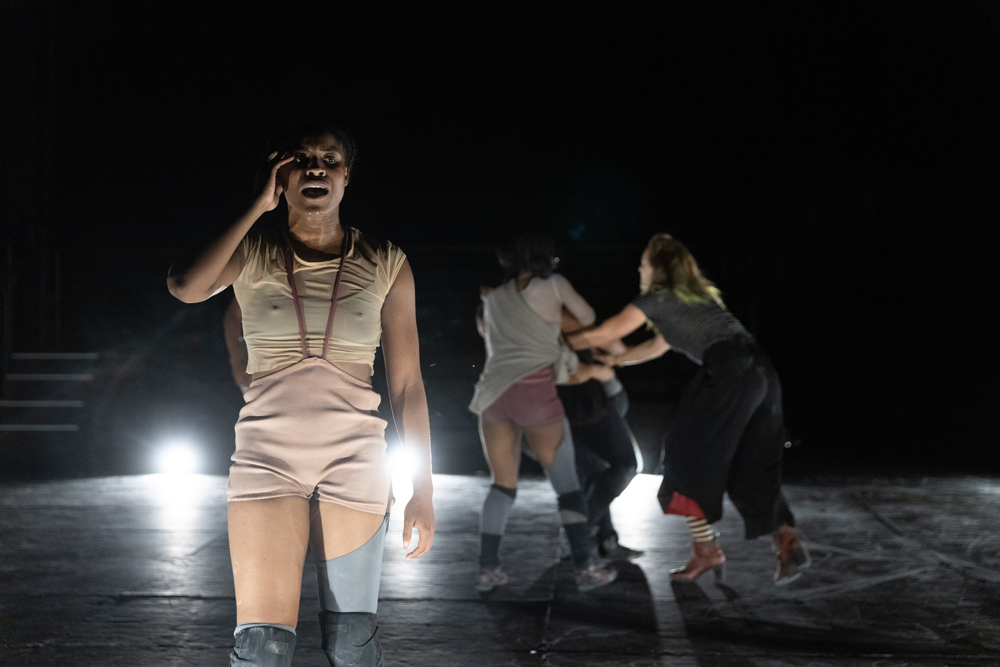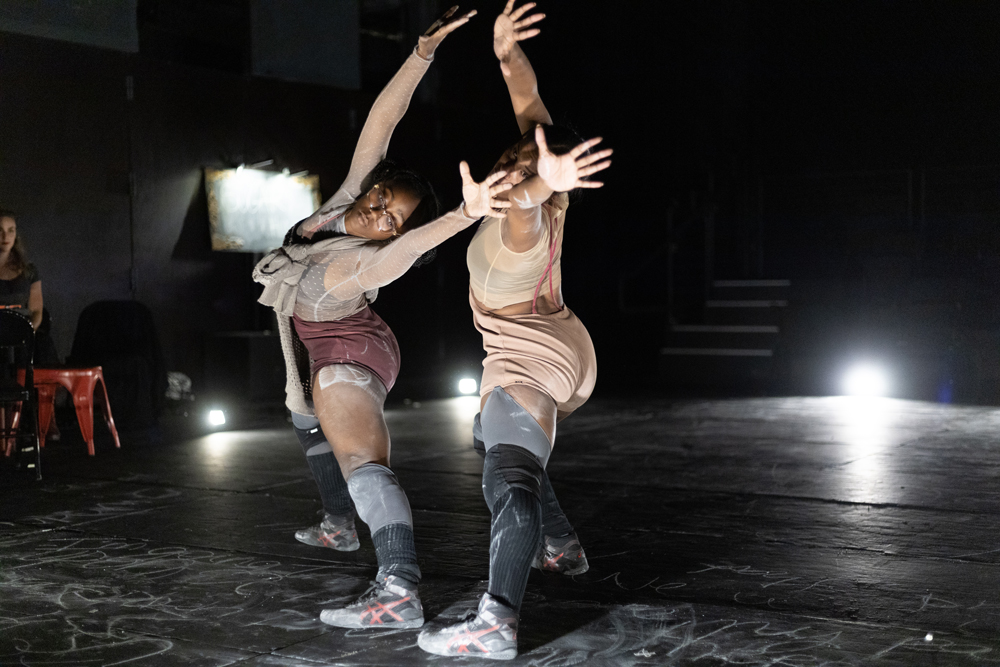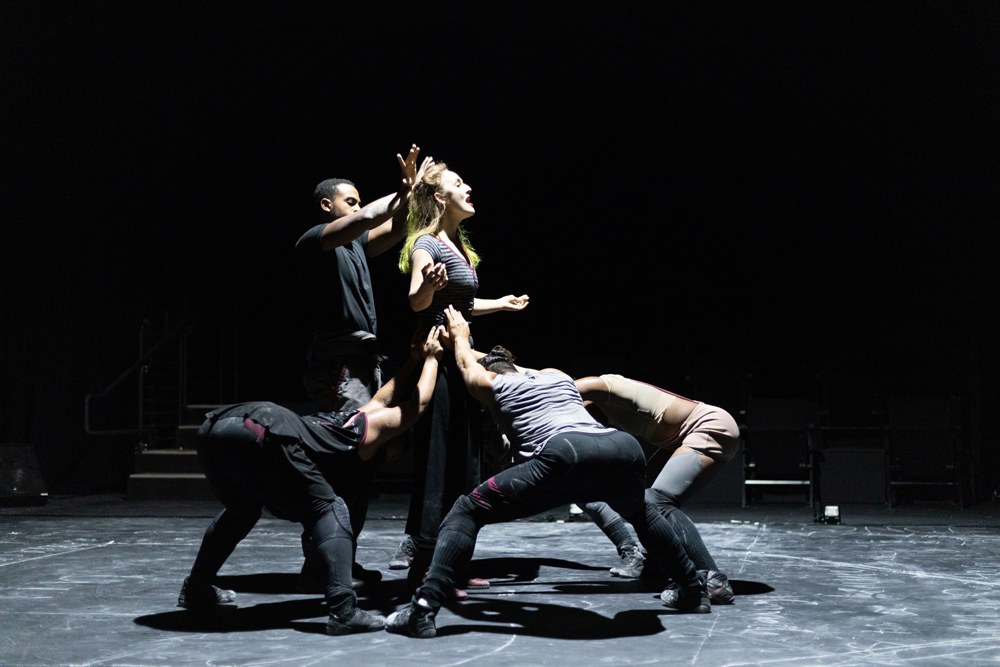“Sugar Houses” is another production that was stopped in its tracks last year by COVID, but fortunately REDCAT has managed to stage it as their first live production since the pandemic shutdown, if only for a week (July 8 -11). This kinetic piece of dance-theater is based loosely around the story of “Hansel and Gretel,” very loosely, and slips about in time and geography. Through it, choreographer/creator Rosanna Gamson has ambitiously tried to reflect on the complexities of folktales, how they can be very dark stories of dysfunctional families and dysfunctional societies, and sometimes perverted to fuel our prejudices. Take, for example, how the dialogue interchangeably mixes the words “witch” and “Jew,” a reference to German anti-Semitism.

Kayla Johnson and company, photo Rafael Hernandez
For those who have been to REDCAT, you know that the theater is a black box, with changing configurations. This time the audience is seated on three sides, with the fourth side taken over by musicians, technicians, and actors sitting out the scene. The floor of the ‘stage” is covered with a blackboard-like material, which is important, as at various times the actors write upon it with chalk. Lighting is provided by small spotlights around the rim of the stage, as well as portable lights held and turned on and off by the actors. It made for a pretty riveting theatrical experience, though not always a coherent one.

Emara NeyMour-Jackson, Kayla Johnson, photo Rafael Hernandez AF4A8550
Six actors/dancers take on all the parts – Hansel and Greta, father and mother, and a lot of other characters. Indeed, my main criticism is that everything goes by too fast, with many scene changes, and much dialogue, making it difficult to absorb the pathos of one scene before it’s replaced with another. Yes, it’s sad when children are kicked out from their homes and forced to wander dark forests, and it’s shocking when the witch is sometimes called a Jew, but we’re not really given enough time to feel it. Perhaps that is why when one of the actors, Kearian Giertz, sings the Irish ballad, “Johnny Has Gone for a Soldier,” we are especially moved. He sings beautifully in falsetto, and we are allowed the time and space to hear him.


